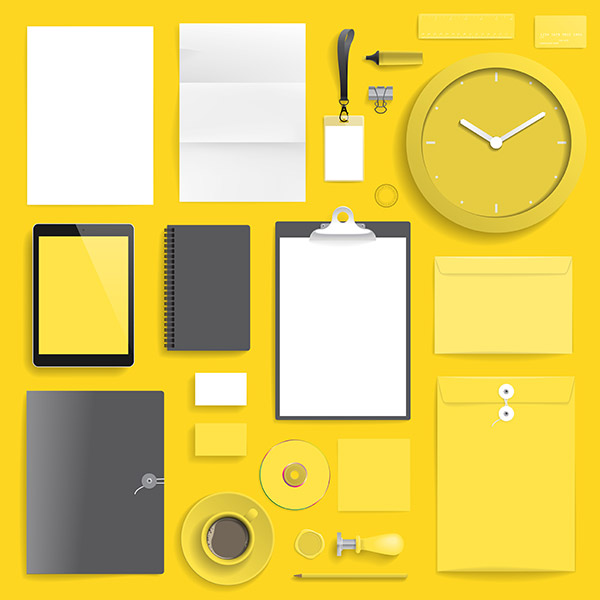Corporate identity design has been an integral element of business since the early 1900s. But despite the effect that the right branding and design can have for a company or a campaign, sometimes it’s difficult to see its true value laid out on a mock-up.
To the untrained eye, it looks a lot like a logo and a color palette rather than a compelling and convincing extension of a company’s offering.
But the power of corporate identity design is just that: the impression and feeling a certain design can give to the untrained eye of your customer when the time comes to make a purchasing decision.
And that’s why companies spend anywhere from $1,000 to $1,000,000 creating a consistent, meaningful, and effective corporate identity design before going to market.
Startups may not have the history and funding to require that kind of identity investment, but that doesn’t mean your corporate identity design isn’t just as important.
Here are four questions you must ask before you develop your initial corporate identity design:
1. What problem do we solve for our customer?
Every piece of branding for your company, from content to video to images, needs to begin with this question. The problem you solve for your customer speaks to so many motivations: why they’re on your website, why they’re reading your content, what they’re hoping to get out of your content, and more.
Understanding the context of the problem you solve for your customer will allow you to identify images, colors, and stylistic elements that fit into their mental landscape. The deeper your understanding of your customer’s problem and how your startup’s solution meets that need, the more appropriate and appealing your design choices will be.
2. How do we want our customer to feel when they first see our brand?
Your first impression is important because most website visitors make a decision about your product or website within 10 seconds. You also need to build a look that can be immediately recognizable as you build your brand and gain more customers through word of mouth.
But the important thing to focus on is the emotional response of your customer’s first look at your branding. Identifying the feelings you want your customer to feel when they first see your brand will help you rule out different styles and trends that may feel right now but won’t impress or attract your customer at first glance.
This is true even in IT and manufacturing companies. The scientific and rational is important, but "your culture and emotion play into customer choice, too" as one of our clients so eloquently put it.
3. How do we want our customer to feel when they are immersed in our brand?
Beyond a stunning first impression, your corporate identity design needs to take into account the customer experience of someone completely immersed in your brand. This will require you to balance your design on the fine line between consistent and boring, professional and personal, familiar and cutting edge.
Consider your entire portfolio of digital and print assets, from your logo and color palette to infographics, whitepapers, and blog posts. Does it feel overwhelming, or exciting? Welcoming, or challenging? Does it inspire confidence?
Depending on how you want your customer to feel, any of these emotions may be the one you want your corporate identity design to express.
4.What do we want customers to do as a result of seeing our brand?
Like all of your marketing assets, the ultimate goal of your corporate identity design is to get results. Clearly identify the resulting action you would like your customer to take (Create an ongoing relationship? Complete a transaction? Share with a friend?) and focus your branding on making that action seem like the right thing to do.
In practice, this might mean creating a more minimal brand design to make your customer comfortable with spending more time on your website. Or a more aggressive approach if your goal is a one-time transaction and referring your company to a colleague. Each of these decisions can be heavily influenced by your branding choices.
Startups are often defined by their speed to market and lean organization. But don’t let those factors limit the power of your corporate identity design.
Use your branding and graphic design choices to speak volumes about your company and give your customer the experience they need to make your startup a success.







